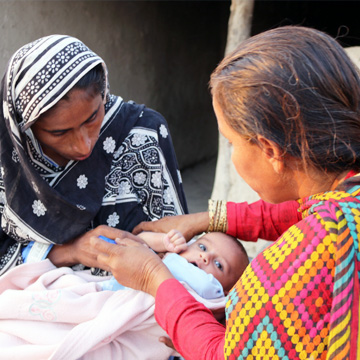In Southern Punjab and various parts Sindh, the communities, specially women, and children still struggling for water. Particularly, In Cholistan and Thar deserts, women walk several kilometers to access water for drinking, cooking washing clothes, and other household chores.
They collect water from the open sources called “Tobas,” These are the natural depressions or man-made water ponds which are the common water sources for human and animals.



Recent Comments